Growth Mindset Teaching Resources
Help students build a growth mindset with teaching resources designed specifically to help establish a growth mindset for kids in elementary and middle school.
Created by teachers, for teachers, each worksheet, motivational classroom poster and activity in this teaching resource collection has undergone rigorous review by the Teach Starter team to ensure it's ready for the classroom ... and your students!
Still learning about the growth mindset and wondering how it applies to kids in your classroom? Read on for some tips from our expert teachers!
What Is a Growth Mindset in the Classroom?
The growth mindset concept — and its counterpart, the fixed mindset — come from the research of Dr. Carol Dweck, a Stanford University professor known for her work on the implicit theories of intelligence. Dweck's research surmises that your mindset falls somewhere on a continuum according to your implicit views of where ability comes from.
Those who believe abilities are innate are said to have a fixed mindset, while those with a growth mindset see learning as a process and understand that we develop over time with learning, hard work, and persistence.
So how do you define a growth mindset for kids?
Broken down to be easily understood by your students, a growth mindset can be defined as the belief that you can develop your brain to be better and better at different skills through a mix of effort and different strategies.
Kids with a growth mindset can see failures as learning opportunities and push past them. This is often compared to a fixed mindset, which hampers kids who feel like their intelligence and abilities can't substantially be improved. A fixed mindset can frustrate students, while a growth mindset offers opportunities to grow.

Fixed Mindset vs. Growth Mindset
Here's how Dweck herself described the fixed mindset vs. the growth mindset in one interview: "In a fixed mindset students believe their basic abilities, their intelligence, their talents, are just fixed traits. They have a certain amount and that's that, and then their goal becomes to look smart all the time and never look dumb. In a growth mindset, students understand that their talents and abilities can be developed through effort, good teaching, and persistence. They don't necessarily think everyone's the same or anyone can be Einstein, but they believe everyone can get smarter if they work at it."
Dweck posits that over-praising kids for being intelligent ends up leading to a fixed mindset, with kids afraid to take risks lest they make mistakes. And there are very real impacts.
One study that looked at the student mindset and student performance looked at 10th graders in Chile: Those who held a growth mindset were three times more likely than their peers to score in the top 20 percent on national achievement tests. On the flip side, in that same study, students with a fixed mindset were four times more likely to score in the bottom 20 percent!
- Plus Plan
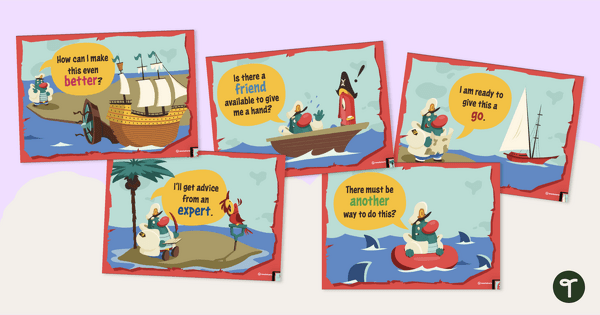
Are We There Yet? – Growth Mindset Progress Chart
Help your students develop a growth mindset by reflecting on their learning progress with this progress tracking chart.
- Plus Plan
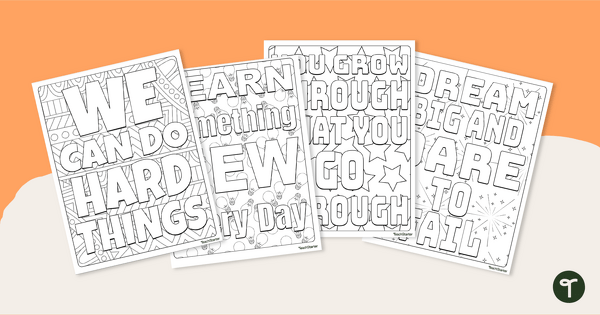
Growth Mindset Coloring Pages
Inspire creativity and encourage your students to think positively with a set of growth mindset coloring pages.
- Plus Plan
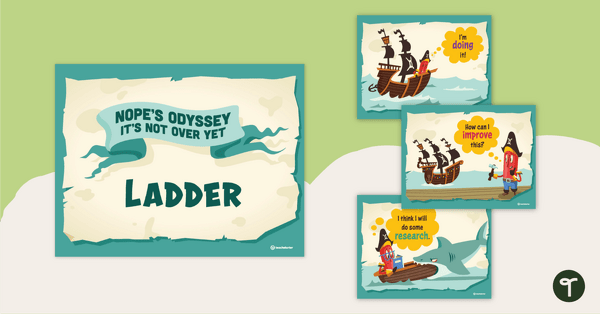
Growth Mindset Vertical Chart With a Pirate Theme
Get your students reflecting on their learning progress with this vertical tracking chart.
- Plus Plan
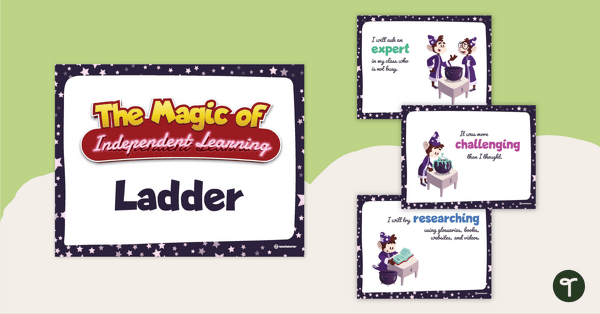
The Magic of Independent Learning – Vertical Chart
Chart your students' learning progress with this set of 8 vertical tracking sheets.
- Plus Plan
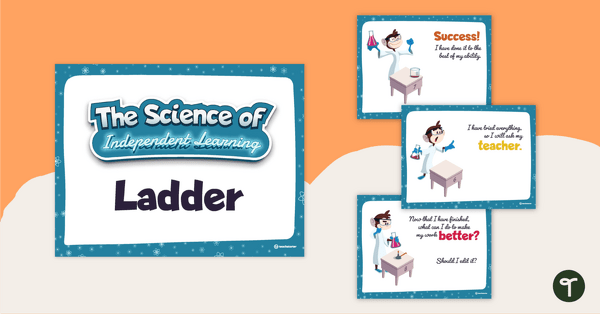
The Science of Independent Learning – Vertical Chart
Chart your students' learning progress on this set of 8 vertical tracking sheets.
- Plus Plan
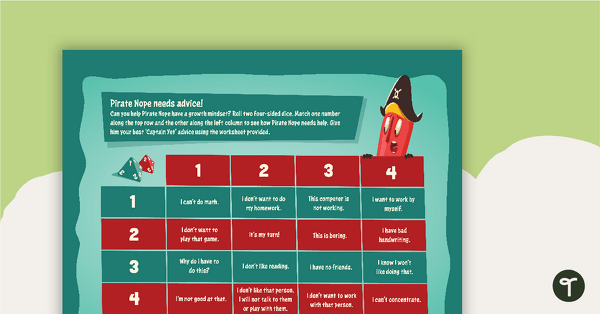
Growth Mindset Dice Game
Download a growth mindset dice game where students use "yet" strategies to solve a problem.
- Plus Plan
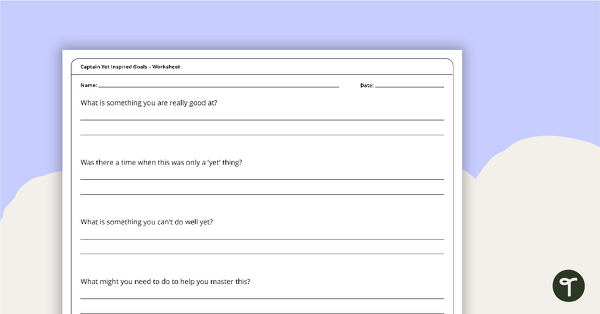
Growth Mindset Goal-Setting Worksheet
Download a printable growth mindset worksheet for students to evaluate their strengths and how to achieve their goals.
- Plus Plan
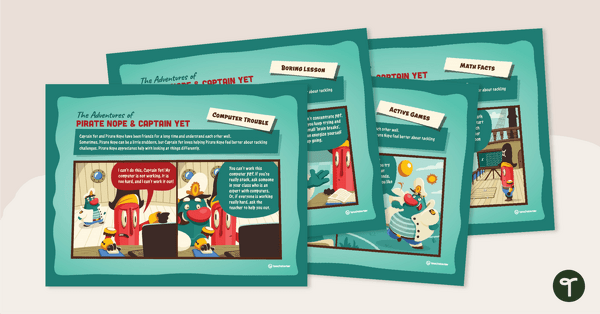
The Adventures of Pirate Nope and Captain Yet – Comic
Problem-solve common challenges at school with a set of 4 comic-style posters.
- Plus Plan
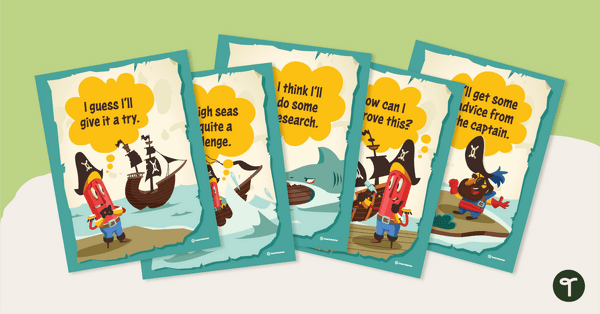
Growth Mindset Posters - Pirate Nope's Odyssey: It's Not Over Yet
Remind your students what a "can-do attitude" looks like in the classroom with this set of 8 posters.
- Plus Plan
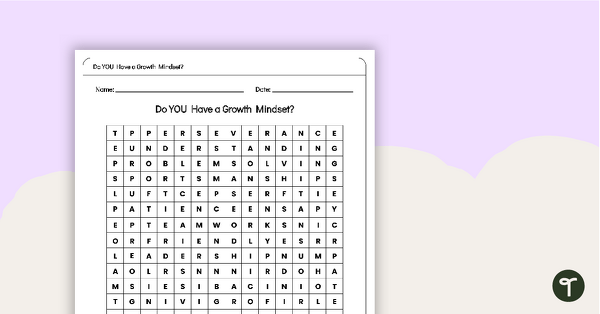
Do YOU Have a Growth Mindset? – Word Search
Use this word search activity to show students the qualities and characteristics of creating a growth mindset in the classroom.
- Plus Plan
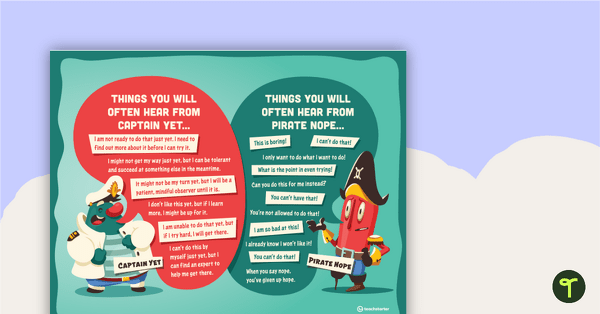
Growth Mindset-Themed Yet vs Nope Classroom Poster
Print a growth mindset-themed set of posters for your classroom that compare positive and negative learning attitudes.
- Plus Plan
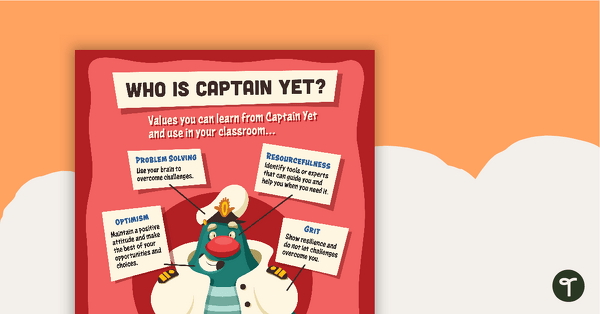
Captain Yet – Values Poster
A Captain Yet poster to help students focus on positive learning habits.
- Plus Plan
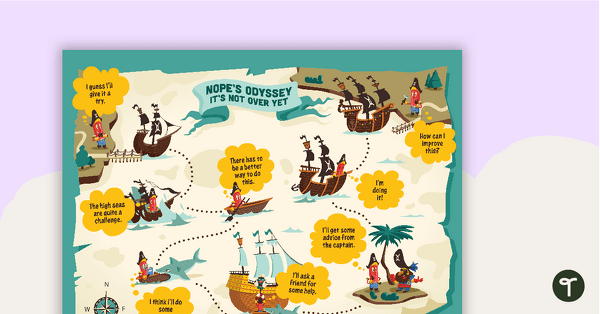
Captain Yet: Pirate Nope's Odyssey It's Not Over Yet – Poster
A Pirate Nope poster to help students learn more resourcefully and independently in the classroom.
- Plus Plan
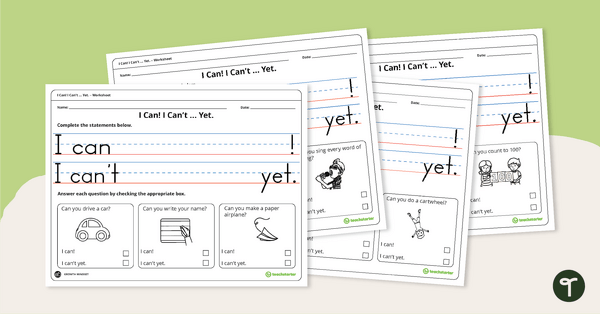
Growth Mindset Worksheets (Grades K-1)
Print these growth mindset worksheets for kindergarten and first grade to learn about I Can and I Can't while practicing handwriting.
- Plus Plan
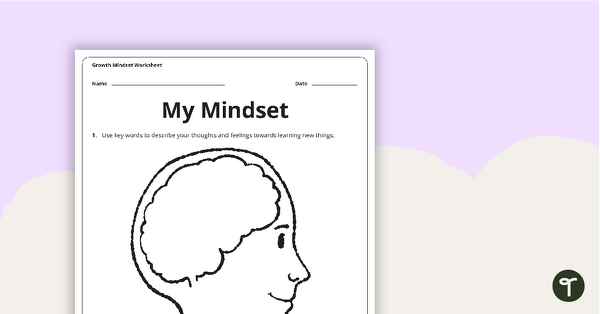
Growth Mindset Worksheets
A set of worksheets to use when teaching students about Growth Mindsets.
- Plus Plan
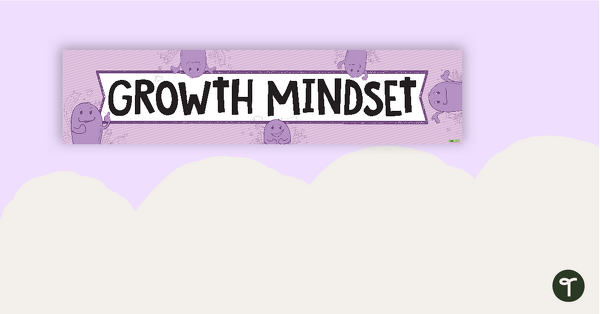
Growth Mindset, Mindfulness, and Wellbeing Display Banners
A classroom display banner to use on your "Growth Mindset" display board.
- Plus Plan
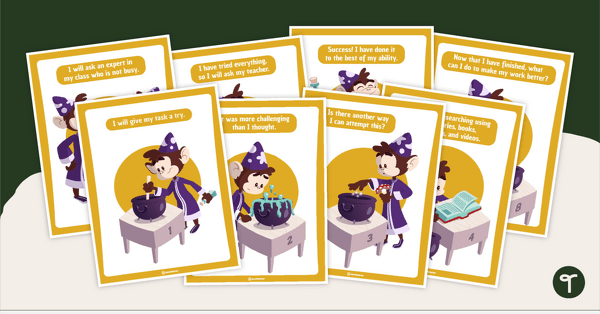
The Magic of Independent Learning – Individual Posters
Help your students become independent learners with this set of 8 strategy posters.
- Plus Plan
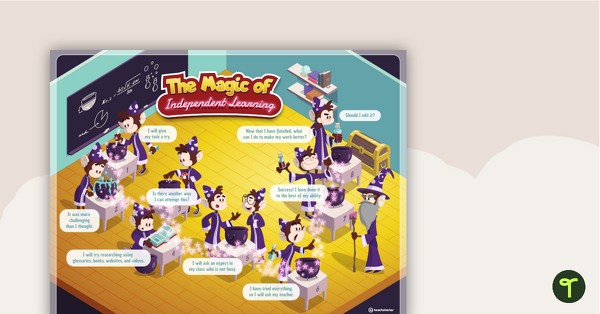
The Magic of Independent Learning – Full Poster
A poster to help students learn independently in the classroom.
- Plus Plan
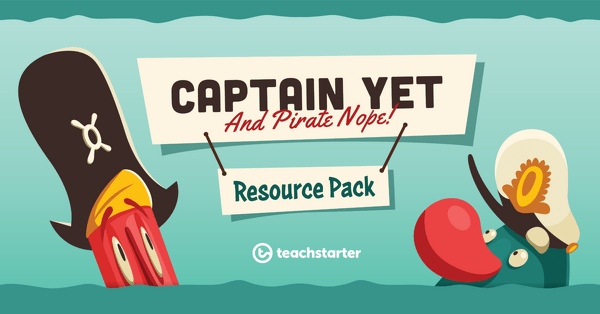
Growth Mindset Teaching Resource Bundle
A collection of resources to use when developing a growth mindset in your students.